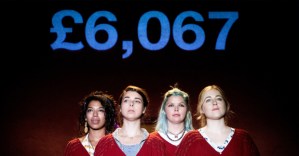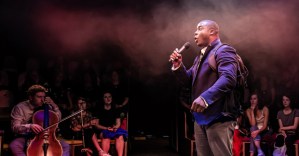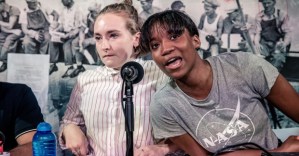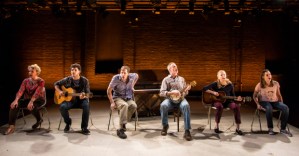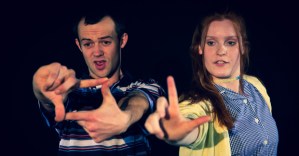Review: Hear Word! Naija Woman Talk True (Royal Lyceum Theatre, Edinburgh)
Ten of Nigeria’s biggest stars perform at the Edinburgh International Festival
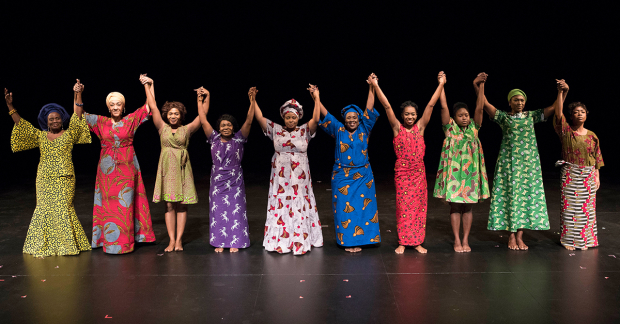
© Gretjen Helene
Hear Word! bursts onto the stage of the EIF with a blaze of colour, a wash of atmosphere and a huge dose of energy. The ten actors, all Nigerian women, embody a host of different characters, most of them unnamed, as they tell their stories of what it's like to be a woman in contemporary Nigeria; but they do so with bags of character and the ability to construct a whole world in just a few moments. And it turns out that their world will be remarkably familiar to anyone who has traced the trajectory of the MeToo movement, such as the women who are fondled on public transport, but don't want to speak out. Maybe it was an accident, after all?
The play unfolds in an unbroken span but with three clear sections. The most striking thing about the first act is how often women are complicit in keeping other women down. A crowd of women criticise another for wearing jeans so tight that she must have invited a man to touch her: "What does she expect if she dresses like a prostitute?" They are incredulous about a man in his 40s who only has eyes for his wife. She must be a witch! One woman thinks of all the things she will "teach" her daughter-in-law to keep her in her place (the kitchen!), and there's a hilarious two-hander of two older women in growing waves of despair at their daughters' inability to bring home a husband.
It's done with great humour, and I laughed all through the play's opening chunk. The dramatic structure leads to an energising finale, with stories of women who transcend the patriarchy's expectations of them. Some are in impossible situations, such as a woman trafficked into sex slavery or one who is beaten by her husband with the village's approval, but they show that even in these circumstances the sisters can do it for themselves, and two climactic monologues about sex bring the house down.
That means the play ends on a high, but this finale only works because of the searing central scenes, heart-breaking portrayals of women who have suffered terribly at the hands of men, including a child bride suffering physical and mental torment as a result of being pregnant at the age of 12, a student victim of rape or, most touchingly, a little girl who has been assaulted by an older family friend. The darkness of these stories throws the positivity of the surrounding scenes into much starker relief, and is at the heart of the play's sucker-punch success.
There is barely any staging, just a black box in which the women's multi-coloured Nigerian costumes flash like splashes of colour in a dark world. Much of the atmosphere is provided by on-stage percussionists whose driving rhythms illustrate the action and provide linking music that gives the play a toe-tapping, bum wiggling energy that's impossible to resist.
It feels like it's designed to instruct a western audience (it was premiered in the USA in 2018), and you could criticise it for spotlighting Nigeria's particular problems rather than placing these women in an international continuum of female suffering. I wasn't worried about that while I was watching it, though. It's a riot of colour, energy and brilliant storytelling. As a white, western man, I loved it.




